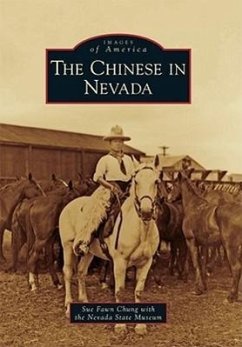When the Chinese were asked to help dig irrigation ditches in the 1850s in Genoa and Dayton, Nevada, no one imagined that they would constitute almost nine percent of the state's population by 1880. Although many were attracted by mining prospects, the ability to own land, and work in railroad construction projects, they held a wide variety of jobs, including ranching, sheepherding, logging, medicine, merchandising, and gaming. Their restaurants and laundries could be found throughout the state. The children became acculturated because the state did not require them to attend segregated schools. Federal and state anti-Chinese legislation had a devastating effect upon the population after 1890, but the repeal of the Chinese Exclusion Act in 1943 and other immigration laws brought newcomers who added to the growth of Chinese Americans. The postwar period saw new opportunities opening up that allowed their leaders to be recognized for their contributions to their community and the state.
Bitte wählen Sie Ihr Anliegen aus.
Rechnungen
Retourenschein anfordern
Bestellstatus
Storno

